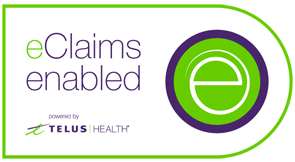Emotional instability, interpersonal difficulties, and self-damaging behaviour characterize Borderline Personality Disorder (BPD). It often leads to strained personal relationships, frequent mood swings, and impulsive decisions that disrupt daily functioning. One of the most effective therapeutic approaches to managing BPD is Dialectical Behavioral Therapy (DBT). DBT is a cognitive behavioural treatment developed by Dr. Marsha Linehan and her team in the late 1980s. It is specially designed to help individuals struggling with emotional regulation and suicidal behaviours often seen in BPD.
Given the surge of mental health awareness and the emergence of self-help literature, many individuals are turning to DBT self-help books. These books provide insight into the nature of BPD, the principles of DBT, and guidance for applying DBT skills to daily life. While these self-help resources are extremely valuable, guidance from a psychotherapist or counsellor remains indispensable.
Psychotherapists or counsellors trained in DBT provide a structured environment for practicing skills. They help patients navigate the complexities of their emotions and behaviours, providing necessary direction and feedback. Therapists also facilitate a comprehensive understanding of DBT skills, which is critical for proper application.
Moreover, they play an integral role in dialectics, an essential aspect of DBT that requires balancing acceptance with change. Dialectics involves the therapist and patient working together to resolve seeming contradictions in feelings and behaviours, promoting growth and reducing destructive behaviours. Self-help books often cannot provide this dynamic interaction vital for therapeutic progress.
Two primary reasons explain why individuals relying solely on self-help books often do not succeed without professional assistance. First, self-help books typically present information in a generalized manner, which can be problematic given the highly individualized nature of BPD. Therapists, however, can tailor treatment plans to cater to each patient’s unique circumstances and needs.
Second, people with BPD often struggle with emotional regulation and impulsivity, challenging the self-directed nature of self-help strategies. The absence of a supportive, external entity like a therapist can leave them vulnerable to negative spirals of self-criticism and frustration. A professional can provide constant support and reassurance, helping the individual maintain motivation and progress.
Combining DBT self-help strategies with professional therapy can yield excellent results. Here is a 10-week outline for DBT skills for self-help:
Week 1-2: Introduction and Mindfulness
- Understand BPD, DBT, and the significance of mindfulness in DBT.
- Practice mindfulness exercises, focusing on the ‘What’ skills (Observe, Describe, Participate).
Week 3-4: Advanced Mindfulness and Distress Tolerance
- Delve deeper into mindfulness and its ‘How’ skills (Non-judgmentally, One-mindfully, Effectively).
- Introduce distress tolerance skills, focusing on crisis survival strategies.
Week 5-6: Distress Tolerance and Emotional Regulation
- Continue practicing distress tolerance skills with a focus on reality acceptance.
- Begin understanding the different emotions, their functions, and methods of regulating them.
Week 7-8: Emotional Regulation and Interpersonal Effectiveness
- Practice emotional regulation techniques such as reducing vulnerability to the emotion mind, and increasing positive emotional events.
- Start learning about assertiveness, interpersonal problem-solving, and the basics of interpersonal effectiveness.
Week 9-10: Interpersonal Effectiveness and Wrap-up
- Continue practicing skills for objective effectiveness, relationship effectiveness, and self-respect effectiveness.
- Review all the skills learned, discuss progress, and wrap up.
At STG La Ronge Counselling, we offer DBT Guided Self-Help. Dialectical Behavior Therapy (DBT) Skills Guided Self-Help, provided by STG Health, is a personalized toolkit for managing emotions, navigating stress, and fostering healthier relationships. It is designed to impart practical skills and inspire their integration into daily routines. The self-help methodology is built on four vital modules: mindfulness, distress tolerance, emotion regulation, and interpersonal effectiveness. It acts as a mental health navigation system, offering the liberty and guidance needed to participate in your personal wellness actively.
Remember, this journey is not one you must undertake alone. STG Health offers continual support with monthly guidance sessions. Consider these as periodic checkpoints where progress can be assessed, focus reestablished, and motivation boosted. However, these sessions are more than just routine updates. They are customized to your specific needs, aiding you in adapting the DBT skills to your unique challenges. In essence, it’s like having a dedicated coach who recognizes your individual struggles and collaborates with you to optimize the use of these skills.















